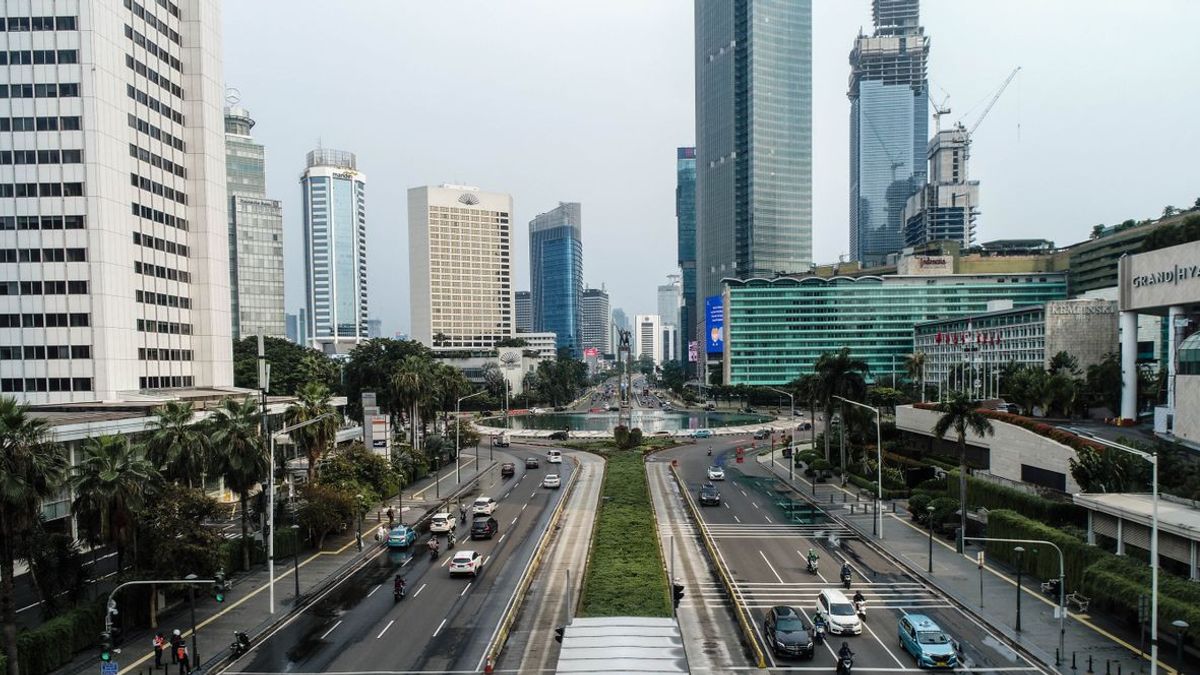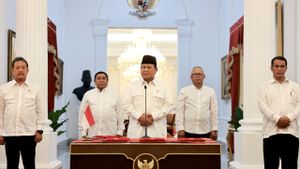JAKARTA - The Meteorology, Climatology and Geophysics Agency (BMKG) assesses that climate change, which has been very drastic for the last thirty years, should be an excuse for Indonesia, to prioritize green building or environmentally friendly-based housing development.
"We have felt this climate change so that housing developers are asked to be more concerned and start implementing green building in its construction," said BMKG Implemented Climate Division Coordinator Marjuki as quoted by ANTARA, Wednesday, October 19.
This statement was conveyed by Marjuki in an online discussion of goodmoney.id entitled 'Property, Insurance and Geothermal Predictions How to Anticipate it?'.
According to Marjuki, one of the real impacts of climate change is drought as evidenced by a day without rain in most areas that have been going on from July to early next year.
In fact, the BMKG noted that as of September 2023 it was the hottest month of all time, with the global average temperature increasing to 36-38 degrees Celsius or reaching an average of 1.5 degrees Celsius above the pre-industrial era.
The increase in geothermal temperature was due to the production of greenhouse gas emissions and was exacerbated by the active El-Nino storm in the Pacific Ocean.
This has caused various impacts such as drought to increase 1.7 times and accompanied by increased air pollution which can have implications for decreasing population health. Therefore, BMKG assesses that people need to be introduced to green building because it can help reduce the impact of climate change.
Green building applies sustainability principles, such as energy savings, water savings, and the use of environmentally friendly building materials.
One example of green building in Indonesia is housing and flats in Tegal, Central Java. This housing applies various environmentally friendly principles, such as the use of renewable energy, water conservation, and good waste management. On the other hand, he explained, all parties must be aware that climate change mitigation efforts are not only concentrated on the use of energy resources, and the food security sector. However, it also includes the provision of decent housing as one of the basic needs of the community. It is known, data from the Central Statistics Agency (BPS) in 2022 reported that the number of housing in Indonesia reached 118.9 million units. This number increased by 2.9 percent from the previous year.
Of these, as many as 70.1 million units are single residences, 29.5 million units are flats, and 9.3 million units are other residential houses.
The largest number of housing is in Java, which is 64.8 million units. Then followed by Sumatra Island with 28.2 million units, Kalimantan Island with 12.7 million units, Sulawesi Island with 12.4 million units, Bali Island and Nusa Tenggara with 5.8 million units, and Papua Island with 1.1 million units.
Therefore, he hopes that with this information the housing developers can better understand the importance of green building and start implementing it in development.
It's just that, according to him, experts assume that in this case the presence of government-private collaboration related to financial-related adjustments must be considered and also highly anticipated so that all people can get the green building benefits.
The English, Chinese, Japanese, Arabic, and French versions are automatically generated by the AI. So there may still be inaccuracies in translating, please always see Indonesian as our main language. (system supported by DigitalSiber.id)













